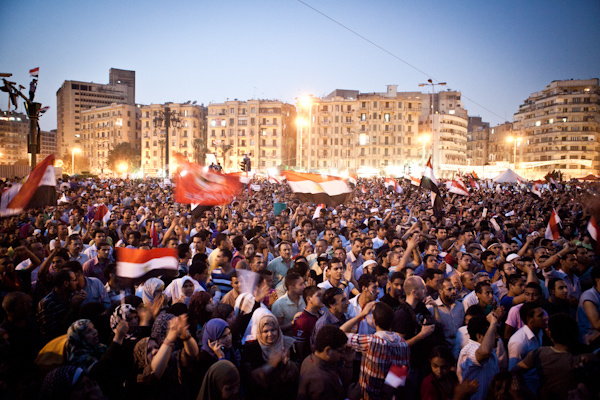
Nour Party spokesperson Nader Bakkar said Thursday that party members intend to take part in protests planned for Friday under the banner of “persistence.”
Nour Party members would march from mosques to the major squares in all governorates after Friday prayers to demand the application of the Political Isolation Law against Ahmed Shafiq, Mubarak’s last prime minister who will be competing in the presidential runoff on 16 and 17 June.
In a post on the Nour Party’s Facebook page, Bakkar said that all participants in the demonstrations needed to focus on one goal: the application of the Political Isolation Law. He said that past protests did not achieve the desired effects because of disunity.
He added that participants in Friday’s protests should not call for boycotting the elections because voting is the only way to ensure that they will not be fraudulent. He also called for the protests to remain peaceful and for demonstrators to refrain from damaging public or private property.
Demonstrations in Tahrir Square during the past few days have demanded the application of the Political Isolation Law, which was passed by Parliament and approved by the ruling military council. The amendment stipulates that anyone who served as vice president or prime minister under Mubarak or held high-ranking positions in his dissolved National Democratic Party in the 10-year period before his resignation on 11 February 2011 cannot exercise their political rights, including voting or holding public office.
Many are calling for Shafiq to be disqualified under the Political Isolation Law before he faces the Muslim Brotherhood’s Mohamed Morsy in the presidential runoff.
The Presidential Elections Commission referred the Political Isolation Law to the Supreme Constitutional Court, which will consider it on 14 June. The court’s commissioners, whose opinion is not binding, said on Wednesday that the elections commission should not have referred the amendment to the court, and called on the judges to dismiss the case. They added that the amendment is unconstitutional.
Edited translation from Al-Masry Al-Youm




